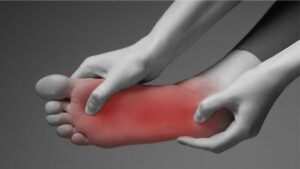Sleep apnea significantly impacts glucose metabolism and insulin resistance, making it crucial for individuals with diabetes to address both conditions.

Table of Contents
What is Sleep Apnea?
Sleep apnea is a disorder marked by repeated interruptions in breathing during sleep.
Symptoms include gasping for air, daytime drowsiness, loud snoring, and pauses in breathing.
This disorder can lead to oxygen deprivation, affecting heart function, blood pressure, and metabolism.
Why does type 2 diabetes often coincide with an increased prevalence of sleep apnea?
Researchers have noted an interconnected relationship between sleep apnea and type 2 diabetes. Each appears to exacerbate the other if not managed.
Sleep apnea reduces oxygen levels in the body. This impacts glucose levels and increases insulin resistance. This can lead to big changes in glucose metabolism. They might help cause type 2 diabetes.
Obesity is a known part of type 2 diabetes. It raises the risk of getting obstructive sleep apnea (OSA). Fat around the neck can narrow the airway. Abdominal fat can press on the chest. Both make it hard to breathe while lying down or sleeping.
Is there a connection between sleep apnea and diabetes?
Absolutely yes!!
The link between sleep apnea and diabetes is significant, with each condition exacerbating the other.
Sleep apnea is highly prevalent among individuals with type 2 diabetes, with over 50% of those affected also suffering from this sleep disorder.
This high prevalence is due to several factors, including obesity, which is common in diabetes and contributes to obstructive sleep apnea (OSA).
Sleep apnea negatively impacts glucose metabolism and insulin sensitivity.
During apneic episodes, the body’s oxygen levels drop, leading to a stress response that increases blood glucose levels and insulin resistance.
This disrupted metabolic state makes it harder to control diabetes, worsening its symptoms and increasing the risk of complications such as cardiovascular diseases.
How to manage sleep apnea with diabetes?
- Weight Management: Reducing body weight helps alleviate sleep apnea symptoms and improve glucose control.
- CPAP Therapy: Continuous Positive Airway Pressure (CPAP) machines keep airways open, improving sleep quality and glucose levels.
- Healthy Lifestyle: A balanced diet, regular exercise, and good sleep hygiene are essential for managing both conditions.
- Medical Interventions: In severe cases, surgical options to remove airway obstructions may be necessary.
- Natural supplements can help manage sleep apnea. It’s often recommended to add natural supplements. They are a complementary way to manage sleep apnea.
Some natural supplements have shown promise.
They improve sleep quality and reduce sleep apnea symptoms.
But, you must ask a healthcare provider before starting any new supplements. This is to ensure safety and efficacy, especially when used with other treatments.
Conclusion
The link between sleep apnea and diabetes is complex. It shows the need to recognize and treat both conditions.
Sleep apnea makes diabetes worse. It does this by disrupting glucose levels and increasing insulin resistance. It also poses big health risks, like heart problems.
Understanding the link between these conditions allows for a holistic approach to management. This may include lifestyle changes. Also, medical interventions like CPAP therapy or surgery. And the use of natural supplements.
Fixing causes like obesity and promoting clear breathing can improve their sleep. They can also improve their diabetes.
But, it’s crucial to consult with healthcare professionals. They will tailor a personalized treatment plan for you. It will consider your needs and ensure your safety and effectiveness.
Managing sleep apnea and diabetes early can lead to better health and quality of life.
Addressing sleep apnea is essential for effective diabetes management. Recognizing and treating both conditions can significantly improve health and quality of life.
For more information, visit our diabetes management resources and natural supplements sections.






